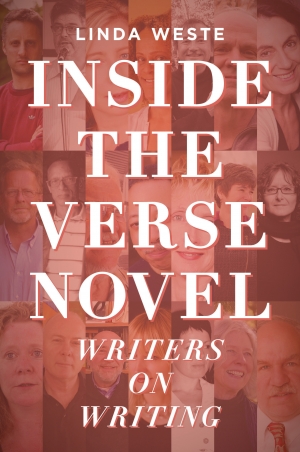Art of Fiction
Cassandra Atherton reviews 'Inside the Verse Novel: Writers on writing' by Linda Weste
In his description of the verse novel as ‘the awkward child of successful parents, destined to disappoint both of them’, Michael Symmons Roberts emphasises the form’s sometimes disjunctive use of literary techniques commonly associated with poetry and prose fiction. While the verse novel has gained popularity since the 1980s, many of its features may be traced to epic poems such The Epic of Gilgamesh and Homer’s The Iliad, and the long narrative poems of the Romantic and Victorian periods. The form was established by Alexander Pushkin’s nineteenth-century verse novel Eugene Onegin, which was divided into stanzas; however, the definition and key features of the verse novel are still hotly debated.
... (read more)My hero is Jakob von Gunten, star of, well, Jakob von Gunten, Robert Walser’s singular novel about a school for servants. I love the quality of Jakob’s subversion in that lovely, strange, tiny place. And my heroine: Theodora Goodman, the eponymous aunt of Patrick White’s The Aunt’s Story, who is glorious and difficult and bewildering and kind.
... (read more)Open Page with Robert Dessaix
Monday, 01 December 2014This is not the age of criticism. Theory killed criticism. This is the age of reviewing and commentary.
... (read more)Open Page with Peter Carey
Saturday, 01 November 2014It’s always dangerous, I believe, to have heroes, but I do admire the author who gave us the wonders of Anna Karenina, say, and to come back to Conrad, how about this first paragraph of Lord Jim? ‘He was an inch, perhaps two, under six feet, powerfully built, and he advanced straight at you with a slight stoop to the shoulders, head forward, and a fixed from-under stare which made you think of a barging bull’. I am in awe of Jim, with his ‘ability in the abstract’.
... (read more)Open Page with Christine Piper
Monday, 01 September 2014I seem to dream more awake than I do asleep. As a child, I often acted out imaginary scenarios, speaking the various parts aloud. Every so often I’ll catch myself doing it again.
... (read more)What makes a story compelling? When I was an undergraduate student at Deakin University, I was fortunate enough to be instructed in fiction writing by Gerald Murnane. His key criterion for the worth of a story was its capacity to mark his memory with an enduring image. Over time he used to cull books from his shelves that failed to impress him in this way.
... (read more)I love pop music that makes me want to dance and fills my heart with joy. Michael Jackson used to be my man. My current favourite song is ‘Happy’ by Pharrell Williams. I’m living in Brooklyn at the moment and the song has been bursting out of the window of every second car all summer long. But if we’re talking desert island albums, I’d be taking some Miles Davis with me. Kind of Blue maybe, or fast forward a few decades to Bitches Brew.
... (read more)The legend of Kenneth Mackenzie (1913–55) has always hovered around the corridors of Australian literature. From Western Australia, was he? Died young, didn’t he? Trouble with drink, wasn’t it? Or sexual identity, could it have been? They say he’s worth reading but nobody much has, have they?
... (read more)Simon Caterson reviews 'The Spy Who Came in from the Cold' by John le Carré
In describing the enduring cultural impact of The Spy Who Came in from the Cold – published fifty years ago and often nominated as the best spy novel ever written – a good place to start, strange though it may sound, is James Bond. John le Carré’s squalid yet subtle world of Cold War spies may appear antithetical to the glamorous fantasy of Bond. But it is clear from the last three Bond films, and especially the latest, Skyfall (2012), which of the two visions of espionage, Fleming’s or le Carré’s, is the more mature and compelling.
... (read more)'You are what you read: Asian Australian fiction in the Asian Century' by Alison Broinowski
White Papers are falling on Australia like confetti. We had two on foreign affairs and one on terrorism in the seven years to 2004; the third one on defence in four years will appear this year, and in October 2012 Ken Henry delivered Australia in the Asian Century. Defence White Papers are perennially concerned with Australia’s need for the material and money to protect us against certain countries, which are rarely named. The Asian Century paper, on the other hand, explicitly names China among the five ‘key regional nations’ to be given priority in order to bring ‘a stronger national purpose and cohesion’ to the relationship with Australia. The Defence White Paper will be sober in tone, as Menzies was when announcing his ‘melancholy duty’ in 1939, or resolute, as was Curtin in declaring Australia’s shift of dependence to the United States in 1941. In contrast, The Asian Century adopts cheerful, forward-looking slogans. Australia’s success ‘will be based on choice, not chance’, it says; ‘the tyranny of distance is being replaced by the prospects of proximity’; and Australia is ‘located in the right place at the right time’. Asia is so important, says Dr Henry, that it is going to be ‘the main game not only economically but in almost any sense of national significance’.
... (read more)






